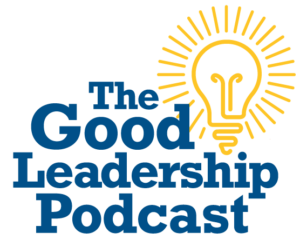

4,000 Surveys Complete – an Update on the Healthy Accountability Research
Kevin Sensenig

At Good Leadership, the belief that goodness pays is central to everything. However, leading with goodness requires more than just intent—it requires accountability. Recently, I had the pleasure of sitting down with Matt Tappe, a graduate student at the University of Minnesota-Duluth studying Industrial-Organizational Psychology, who has been working closely with me on the ongoing Accountability Research Project. The discussion was featured on the Good Leadership Podcast, where the conversation explored the evolving role of accountability in today’s organizations. You can listen to that episode here.
The Research Journey
The accountability research project began with qualitative interviews involving C-suite leaders, managers, and individual contributors, followed by a broad quantitative survey. The research gathering concluded late this summer, followed by an analysis of data from nearly 200 interviews and almost 4,000 quantitative survey responses. The goal of the research is to uncover what makes accountability healthy and to help organizations create environments where people feel empowered, rather than constrained, by accountability.
A Double-Edged Sword
As Matt highlighted during the conversation, accountability can often feel like a double-edged sword. Data from the research shows that about 60% of respondents view accountability positively, while 20% remain neutral, and another 20% see it as a source of stress or tension. This divide underscores the need for organizations to rethink their approach to accountability. When done right, accountability fosters trust, progress, and growth. But when done poorly, it leads to finger-pointing, stress, and disconnection.
The key lies in how accountability is framed. It should be seen as an opportunity for growth—a way for individuals to understand how their work impacts others and how they can continuously improve. Leaders must communicate the “why” behind accountability and provide the necessary support and resources for employees to succeed.
The Pathway to Healthy Accountability
One clear takeaway from the research is that accountability is not about punitive measures; it’s about shared commitment. The next steps in this work involve building a pathway to healthy accountability that shifts from rules-based enforcement to a culture where people seek accountability because they know it’s tied to their personal and professional growth.
Insights from this research will be shared at the Good Leadership Conference on November 22, with pragmatic healthy accountability workshops launching in 2025, where we can benchmark the organization’s accountability practices against the collected data. Reach out to Jill (jill@goodleadership.com) if you are interested in attending the conference.
In the end, accountability is the glue that makes goodness work. It’s what transforms good leadership into great leadership, and the ongoing exploration of how organizations can create environments where accountability is sought rather than feared is essential.




